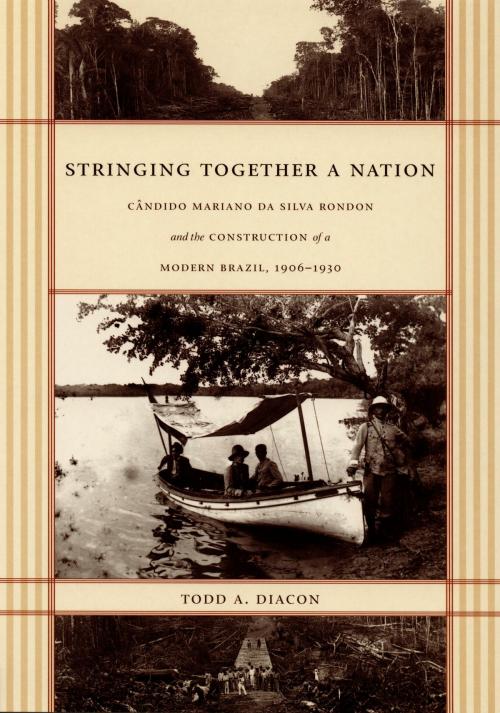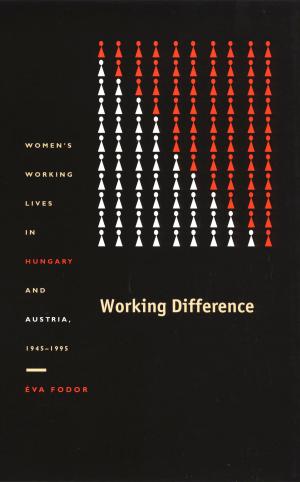Stringing Together a Nation
Cândido Mariano da Silva Rondon and the Construction of a Modern Brazil, 1906–1930
Nonfiction, History, Americas, South America| Author: | Todd A. Diacon | ISBN: | 9780822385479 |
| Publisher: | Duke University Press | Publication: | February 4, 2004 |
| Imprint: | Duke University Press Books | Language: | English |
| Author: | Todd A. Diacon |
| ISBN: | 9780822385479 |
| Publisher: | Duke University Press |
| Publication: | February 4, 2004 |
| Imprint: | Duke University Press Books |
| Language: | English |
Focusing on one of the most fascinating and debated figures in the history of modern Brazil, Stringing Together a Nation is the first full-length study of the life and career of Cândido Mariano da Silva Rondon (1865–1958) to be published in English. In the early twentieth century, Rondon, a military engineer, led what became known as the Rondon Commission in a massive undertaking: the building of telegraph lines and roads connecting Brazil’s vast interior with its coast. Todd A. Diacon describes how, in stringing together a nation with telegraph wire, Rondon attempted to create a unified community of “Brazilians” from a population whose loyalties and identities were much more local and regional in scope. He reveals the work of the Rondon Commission as a crucial exemplar of the issues and intricacies involved in the expansion of central state authority in Brazil and in the construction of a particular kind of Brazilian nation.
Using an impressive array of archival and documentary sources, Diacon chronicles the Rondon Commission’s arduous construction of telegraph lines across more than eight hundred miles of the Amazon Basin; its exploration, surveying, and mapping of vast areas of northwest Brazil; and its implementation of policies governing relations between the Brazilian state and indigenous groups. He considers the importance of Positivist philosophy to Rondon’s thought, and he highlights the Rondon Commission’s significant public relations work on behalf of nation-building efforts. He reflects on the discussions—both contemporaneous and historiographical—that have made Rondon such a fundamental and controversial figure in Brazilian cultural history.
Focusing on one of the most fascinating and debated figures in the history of modern Brazil, Stringing Together a Nation is the first full-length study of the life and career of Cândido Mariano da Silva Rondon (1865–1958) to be published in English. In the early twentieth century, Rondon, a military engineer, led what became known as the Rondon Commission in a massive undertaking: the building of telegraph lines and roads connecting Brazil’s vast interior with its coast. Todd A. Diacon describes how, in stringing together a nation with telegraph wire, Rondon attempted to create a unified community of “Brazilians” from a population whose loyalties and identities were much more local and regional in scope. He reveals the work of the Rondon Commission as a crucial exemplar of the issues and intricacies involved in the expansion of central state authority in Brazil and in the construction of a particular kind of Brazilian nation.
Using an impressive array of archival and documentary sources, Diacon chronicles the Rondon Commission’s arduous construction of telegraph lines across more than eight hundred miles of the Amazon Basin; its exploration, surveying, and mapping of vast areas of northwest Brazil; and its implementation of policies governing relations between the Brazilian state and indigenous groups. He considers the importance of Positivist philosophy to Rondon’s thought, and he highlights the Rondon Commission’s significant public relations work on behalf of nation-building efforts. He reflects on the discussions—both contemporaneous and historiographical—that have made Rondon such a fundamental and controversial figure in Brazilian cultural history.















